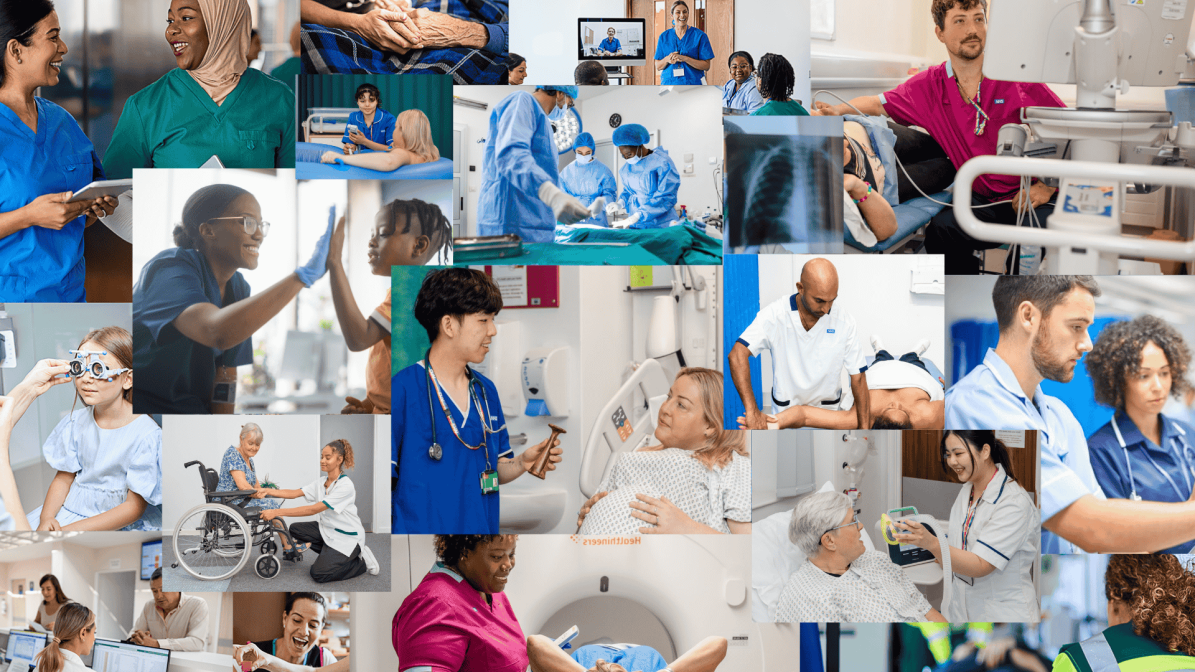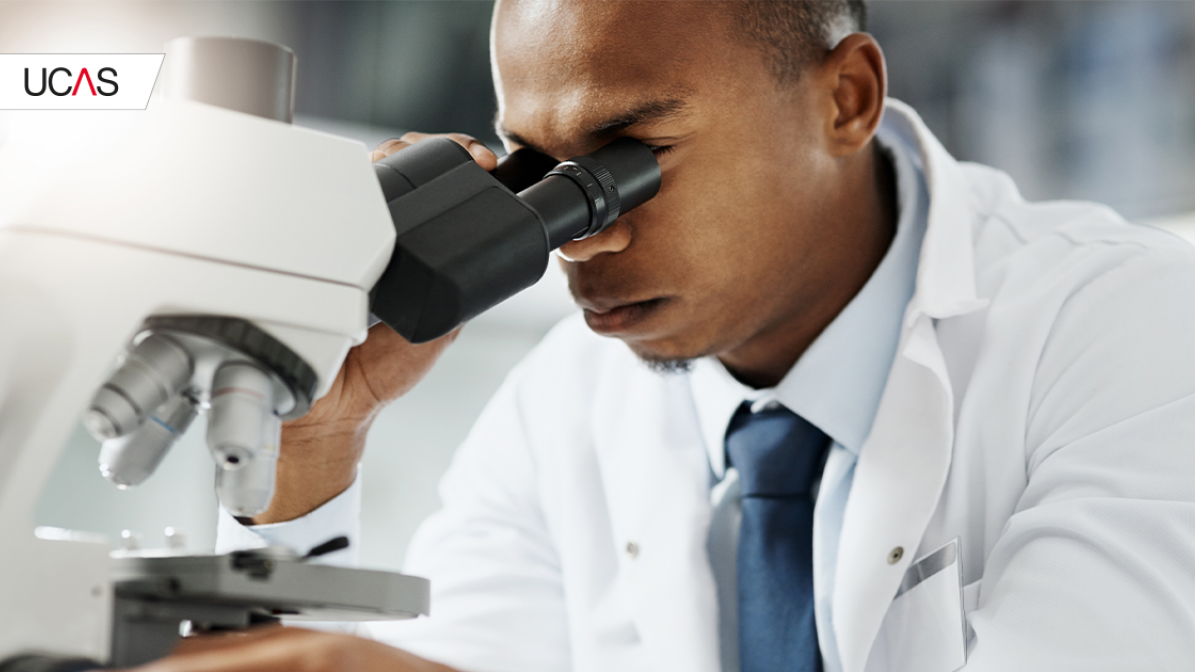What's on this page?
As a pharmacologist or toxicologist, you’ll be at the forefront of medical research, fighting researching treatments for new diseases and illnesses as they occur. You’ll also be working to ensure that current medicines remain effective, keeping the population healthy.
Pharmacists are experts in the safe and effective use of medicines to treat and manage disease wherever they work. You’ll provide a front-line clinical service, as part of the third largest healthcare profession in Great Britain.
With experience, you could become a pharmacy consultant or set up your own community pharmacy business or, as with toxicology and pharmacology, progress into leadership and management, education, training, or research. Nine out of ten graduates studying these subjects are in employment or further study within six months of finishing their course.
The impact you could make
- Test a new Alzheimer’s medicine for potential risks or side effects.
- Work as a pharmacist officer in the Army, providing clinical and dispensing services in field hospitals during conflicts.
- Become a community pharmacist, and a key part of your neighbourhood, administering medicines to patients who rely on you.
What you could study
- Dispensing medicines
- Drug discovery and delivery
- Pharmaceutical chemistry
- Molecular biology
- Life science skills
- Microbiology
- Endocrine and neurophysiology
- Clinical toxicology
- Providing basic and extended pharmacy services
- Clinical pharmacology
- Public health
- Law and ethics related to pharmacy, pharmacology, and toxicology
Study options
Options to study in this field include:
- undergraduate courses in pharmacy, pharmacology and toxicology
- pharmacy apprenticeships

Discover careers in the NHS
The NHS offers a variety of careers in the pharmacology, toxicology, and pharmacy sector. Discover roles in the NHS and the different ways to get started on your future career.
Find out more
Chat to a current pharmacy, pharmacology, or toxicology student
Chat to a current pharmacy, pharmacology, or toxicology student using UniBuddy.
Some conversation starters for you:
- Ask which modules they really enjoyed.
- Find out how easy it was for them to make friends on their course.
- Do they have any tips on your personal statement?
- Did they do anything to prep for uni before they went?
- Are there books, podcasts or YouTube channels they would recommend?
Example module
Example assignment
Subjects it's useful to have studied first
Some pharmacy, pharmacology, and toxicology courses or apprenticeships will have requirements for previous qualifications in certain subjects.
Chemistry
Biology
Maths
Physics
Psychology
Hard skills you'll develop
- Clinical pharmacy
- Pharmaceuticals
- Auditing
- Medical prescription and dispensation
- Primary care
Soft skills you'll develop
- Communication
- Management and leadership
- Ethical standards and conduct
- Customer service
Careers: Where it can take you
Find out more about your career prospects from studying pharmacy, pharmacology, and toxicology. The following information is based on a typical pharmacist role.
Available jobs
Average salary
Career options
Pharmacy, pharmacology and toxicology
Natural sciences
Medicine and research
Pathologist

What is an… ecotoxicologist?
You may never have heard of an ecotoxicologist, but they look at the impact toxins can have on our natural environment, particularly on biological organisms in our soil and water systems. For example, a ecotoxicologist might predict the effect that industrial pollution in rivers will have on food resources for fish, other organisms and the wider river ecosystem.
Through their predictions they can try and prevent environmental damage before it happens.

Find your ideal career
Take our careers quiz to find your ideal job matched to your personality type.Getting in: Entry requirements
Find out more about what you'll need to study pharmacy, pharmacology and toxicology at university or as an apprenticeship.
Average requirements for undergraduate degrees
Entry requirements differ between university and course, but this should give you a guide to what is usually expected from pharmacy, pharmacology and toxicology applicants.
A levels
Scottish Highers
Vocational

Health and science apprenticeships
Check out our industry guide to help you decide if a health and science apprenticeship might be right for you.Other subjects you may be interested in
Considering an apprenticeship?
Applying for an apprenticeship is just like applying for a normal job. Here’s what you need to know:-
1
Deadline
Apprenticeships don't follow the same deadlines as applying to uni, the deadline is down to the employer. -
2
Where to apply
You apply directly through the employer. -
3
No limits
You're not restricted to one apprenticeship application; you can do as many as you like. -
4
Apply to university and apprenticeships
There's nothing stopping you applying to university through UCAS, while also applying for apprenticeship vacancies. -
5
Find out more
Read our guide to health and science apprenticeships.
Let's talk about... science apprenticeships (Sponsored by Manchester Metropolitan University)
Not sure if a traditional degree is for you? Listen to our new podcast to learn more about studying degree apprenticeships in science.
Explore further
Go deeper into topics around pharmacy, pharmacology, and toxicology with the following.-
1
Royal Pharmaceutical Society guides
Use the RPS guides to educate yourself on all different aspects of pharmacy, from administration of medicines to antimicrobial resistance to pharmacogenomics. -
2
SpeedPharmacology
Watch these short, fun explainer videos on YouTube to find out more about different aspects of pharmacology.
-
3
Toxicological Sciences
Get up to speed on what’s happening in the world of toxicology and related research with the Society of Toxicology’s journal.
-
4
MicroPharm on YouTube
NHS pharmacist and pharmacy lecturer Yasir Sacranie has created a series of videos about studying pharmacy, as well as videos on specific drugs and diseases.
Application advice
Whether it's personal statement tips or what to write in a cover letter for an apprenticeship application, our application advice will help you get ahead in your pharmacy, pharmacology, and toxicology journey.Skills, experiences, and interests to mention
- Consider demonstrating both your science and healthcare knowledge – alongside softer skills such as strong communication skills, compassion, and empathy if you want to be a pharmacist. Mention journals you read or scientists you follow, and your views on some of the issues they raise. For the softer skills, can you give an example of when you’ve helped a friend or relative, or undertaken volunteer work.
- Can you show your commitment to the subject with any volunteer positions or weekend jobs in your community pharmacy, hospital, or GP practice, or any scientific companies in your local area?
- As a pharmacist, you’ll be a forward-facing medical professional who’ll need good people skills. What clubs have you joined or started, or part-time jobs have you done that show you’re good with people, and understand customer service?
- As a pharmacist, pharmacologist, or toxicologist, you’ll need to be able to work effectively as part of a wider team, work under pressure, and demonstrate high levels of accuracy. What hobbies or jobs have you had that show highlight these skills, like project work at college, competing at a high level in a team sport, or even working in a busy barcafe?
- Pharmacology and toxicology degrees will focus more on the scientific and analytical side, leading to much more lab work and experimentation. Have you had lab experience you can mention, or carried out any experiments at home?
- What about your ability to work independently as well as a team? Think about how you can show you have those skills required for your future job.

Writing your personal statement
We asked admissions tutors to share their dos and don’ts for writing a strong and engaging pharmacy, pharmacology, and toxicology personal statement. Here's what they told us.












